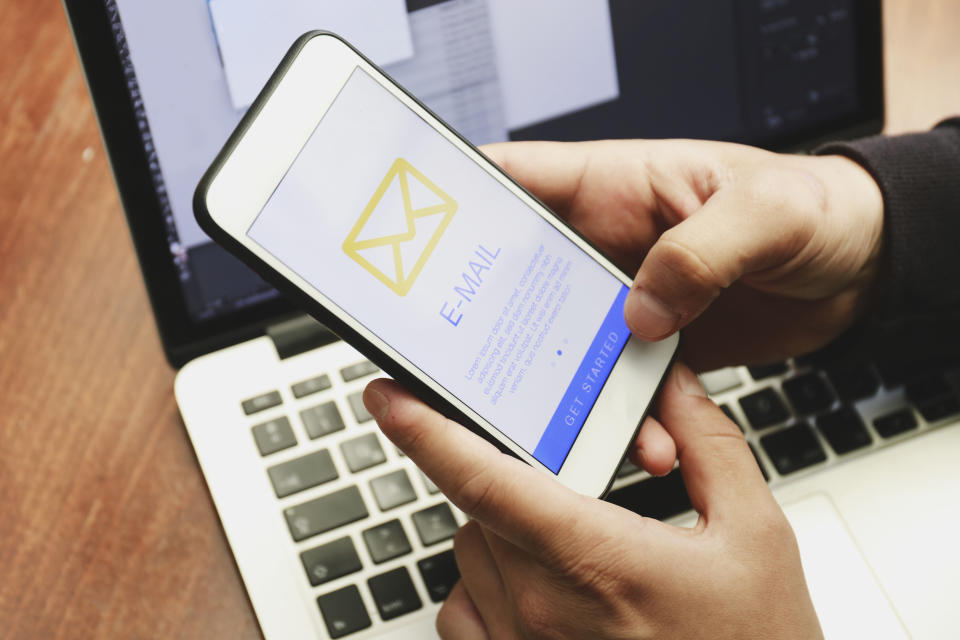Common words and phrases in emails that you really shouldn't use

The all-new Yahoo Mail has arrived. Download it here.
SINGAPORE — So, you’ve been following our advice and using these tips to write better emails? That’s great — but now isn’t the time to pat yourself on the back. To take your writing game to the next level, here are some words and phrases that you should learn to leave out in your next email.
Fine
It’s fine to use the word “fine” like how I used it in this sentence, but please don’t use it as a one-word reply because that’s confusing and leaves people to second-guess if you meant otherwise.
Consider this exchange:
“Hey Ryan, I need more time with my story. Can I hand it in next week?”
“Fine.”
Does this sound like a begrudging “fine” to you? To avoid misunderstandings, you can give a straightforward “OK”. Or don’t be stingy, and reply, “Sure — don’t worry about it.”
READ MORE:
How to up your email game: Stop annoying other people with poorly written emails
Getting to inbox zero: is it worth it?
Revert
You’ve probably heard of this before, but it’s still worth repeating for those new to the power of the Send button: “revert” doesn’t mean “reply”.
The word “revert” means returning to the previous condition or practice — you know, like grassland reverting to forest or an ex-smoker reverting to old habits. “Please revert to this email ASAP” is technically impossible!
The solution is to use the word “reply”. Occasionally I’ll change it up and say, “I look forward to your response.”

Touch base
“Touch base” means to get in contact, so it’s not wrong to say “I’ll touch base with you soon” if you mean you’ll be emailing/calling/visiting the other party in the near future.
But “touch base” and the compound word “touchbase” have another definition, which is why I recommend not using the terms at all. I’ll leave it to your imagination (and Yahoo or Google search) but this other meaning is a sexual act.
Additionally, even if there are multiple people, there’s only one base, so “touch bases” is also incorrect.
Noted with thanks
Strictly speaking, there’s nothing wrong with the sentence ‘Noted with thanks.’ When swamped with emails, that certainly saves more time than if you were to type, “Hi John, thanks for raising the concerns. I will take note of them and get back to you shortly.”
My recommendation is to use this phrase sparingly and be mindful of the context. For instance, if the email sender took time to share something in detail or this is an angry email, this reply can sound abrupt and dismissive. If brevity is your goal, a simple “thank you” works better.
Is there any response more irritating than “noted with thanks”? Yup — “Acknowledged.”
Hope this email finds you well
Fashion moves with the times and so should email greetings.
While “I hope this email finds you well” is common in emails, it’s been so overused that people now find it insincere. And an email (non-living thing) trying to find out if a person (living thing) is healthy — doesn’t that sound weird or funny? Also, what if the recipient is really unwell?
If you’re unable to go straight to the point and must start off with a greeting (maybe this is the first time you’re emailing the recipient), it’s more natural to just say “Good morning.” (Or afternoon or evening.)
With regards to
Does this sentence sound familiar: “With regards to this matter, I suggest that we…”?
A widespread error, the correct phrase to use is “with regard to” — that is, no “s” at the end of the word “regard.”
Here’s my tip if you, like me, find it hard to remember which is the correct spelling: be an economical writer and use “regarding this matter” instead.


